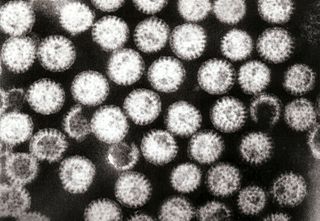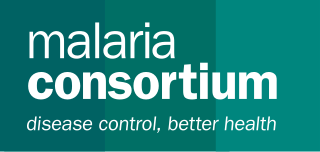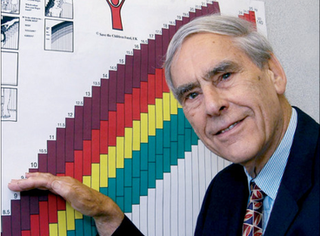
Diarrhea, also spelled diarrhoea or diarrhœa in British English, is the condition of having at least three loose, liquid, or watery bowel movements each day. It often lasts for a few days and can result in dehydration due to fluid loss. Signs of dehydration often begin with loss of the normal stretchiness of the skin and irritable behaviour. This can progress to decreased urination, loss of skin color, a fast heart rate, and a decrease in responsiveness as it becomes more severe. Loose but non-watery stools in babies who are exclusively breastfed, however, are normal.

Malnutrition occurs when an organism gets too few or too many nutrients, resulting in health problems. Specifically, it is "a deficiency, excess, or imbalance of energy, protein and other nutrients" which adversely affects the body's tissues and form. Malnutrition is not receiving the correct amount of nutrition. Malnutrition is increasing in children under the age of five due to providers who cannot afford or do not have access to adequate nutrition.

Harpenden is a town and civil parish in the City and District of St Albans in the county of Hertfordshire, England. The population of the built-up area was 30,240 in the 2011 census, while the population of the civil parish was 29,448. Harpenden is a commuter town, with a direct rail connection to Central London.

The University of Hertfordshire (UH) is a public university in Hertfordshire, United Kingdom. The university is based largely in Hatfield, Hertfordshire. Its antecedent institution, Hatfield Technical College, was founded in 1948 and was identified as one of 25 Colleges of Technology in the United Kingdom in 1959. In 1992, Hatfield Polytechnic was granted university status by the British government and subsequently renamed University of Hertfordshire. It is one of the post-1992 universities.

Oral rehydration therapy (ORT) is a type of fluid replacement used to prevent and treat dehydration, especially due to diarrhea. It involves drinking water with modest amounts of sugar and salts, specifically sodium and potassium. Oral rehydration therapy can also be given by a nasogastric tube. Therapy should routinely include the use of zinc supplements. Use of oral rehydration therapy has been estimated to decrease the risk of death from diarrhea by up to 93%.

The International Food Policy Research Institute (IFPRI) is an international agricultural research center founded in 1975 to improve the understanding of national agricultural and food policies to promote the adoption of innovations in agricultural technology. Additionally, IFPRI was meant to shed more light on the role of agricultural and rural development in the broader development pathway of a country. The mission of IFPRI is to provide research-based policy solutions that sustainably reduce poverty and end hunger and malnutrition.

Child mortality is the mortality of children under the age of five. The child mortality rate refers to the probability of dying between birth and exactly five years of age expressed per 1,000 live births.
Derrick B. Jelliffe and his wife Eleanore. F. Patrice Jelliffe – known as Dick and Pat Jelliffe – were experts in tropical paediatrics and infant nutrition. They are most known for their seminal book, Human Milk in the Modern World, published by Oxford University Press in 1978, and for editing the multi-volume Advances in International Maternal and Child Health. The Jelliffes also wrote over 500 scholarly papers, often together, and 22 books. They lived and worked in England, Africa, India, the Caribbean and settled in Los Angeles, where he held the Chair in Public Health and Paediatrics at the University of California from 1972 to 1990.
Alexander "Sandy" Messent Cairncross OBE is an epidemiologist at the London School of Hygiene and Tropical Medicine (LSHTM). He has an interest in environmental interventions for disease control, including both technical issues and policy.

ICDDR,B is an international health research organisation located in Dhaka, Bangladesh. Dedicated to saving lives through research and treatment, ICDDR,B addresses some of the most critical health concerns facing the world today, ranging from improving neonatal survival to HIV/AIDS. In collaboration with academic and research institutions over the world, ICDDR,B conducts research, training and extension activities, as well as programme-based activities, to develop and share knowledge for global lifesaving solutions.

The Entertainment Community Fund, formerly The Actors Fund, is a 501(c)(3) charitable organization that supports performers and behind-the-scenes workers in performing arts and entertainment, helping more than 17,000 people directly each year. Serving professionals in film, theatre, television, music, opera, radio and dance, the Fund's programs include social services and emergency financial assistance, healthcare and insurance counseling, supportive and affordable housing, and employment and training services. The Fund owns and operates the Lillian Booth Actors Home, a skilled nursing and assisted living facility in Englewood, New Jersey.
Hesperian Health Guides, formerly known as Hesperian Foundation, is a nongovernmental non-profit organization publishing health guides for trained and untrained people to care for themselves and others. The foundation is based in Berkeley, California. Among their best-selling publications is Where There is No Doctor, first published in 1973 and updated every few years. The book has been translated to more than 80 languages and the World Health Organization estimates that it may be the most widely used public health manual in the world.
Chris Underhill is an English social entrepreneur.

Malaria Consortium is an international non-profit organization specializing in the comprehensive control of malaria and other communicable diseases – particularly those affecting children under five.

Richard Alan Cash, M.D., M.P.H. is an American global health researcher, public health physician, and internist. He is a Senior Lecturer in International Health at the Harvard T.H. Chan School of Public Health in Boston.

David Cornelius Morley was a British paediatrician and Emeritus Professor of Child Health, UCL Institute of Child Health who saved the lives of many thousands of children in developing countries.
Evidence Aid is an international platform that was formed out of the need to deliver time sensitive access to systematic reviews for use in the event of disasters and other humanitarian emergencies. The method of using systematic reviews is to provide evidence for use by policy makers, clinicians, regulators, and even the general public who benefit when these materials are easy to understand and are accessible. The vision of Evidence Aid is to create and satisfy an increasing demand for evidence to improve the impact of humanitarian aid by stimulating the use of an evidence-based approach. Evidence Aid was founded in 2004. It is currently a project that is housed by the Cochrane Collaboration and Queen's University Belfast. Evidence Aid was established by several members of the international Cochrane Collaboration following the 2004 Indian Ocean earthquake and tsunami. Evidence Aid was formed to provide systematic reviews on the effects of interventions and actions of relevance prior to, in the course of and during the aftermath of disasters or other humanitarian emergencies, in order to improve health-related outcomes; their aim is to work with those who need and use this evidence, as well as working with researchers and publishers to facilitate freely accessible materials to meet the information needs for those facing humanitarian emergencies and disasters. Evidence Aid works in collaboration with other organizations including Public Health England; Red Cross Flanders, International Rescue Committee; Centers for Disease Control; Centre for Evidence-Based Medicine; and the University of Oxford.
The International Society for Infectious Diseases (ISID), established in 1986, is a nonprofit organization that monitors infectious diseases on a global scale. It also offers grants and fellowships, publishes a journal, and runs online learning platforms for sharing information on managing infectious diseases. It is based in Brookline, Massachusetts, US. The organization solicits donations from the general public, as well as governments, foundations, and the pharmaceutical industry.
Paul William Glewwe is an economist and Professor of Applied Economics at the University of Minnesota. His research interests include economic development and growth, the economics of the public sector, and poverty and welfare. He formerly was the Director of the Center for International Food and Agricultural Policy and served as co-chair of the education programme of the Abdul Latif Jameel Poverty Action Lab (J-PAL).

Gabrielle Palmer has been involved for over 40 years in international efforts to stop the unethical promotion of breastmilk substitutes globally and to support appropriate infant feeding. She is the author of the seminal text, The Politics of Breastfeeding, now in its revised third edition and which has never been out of print.












